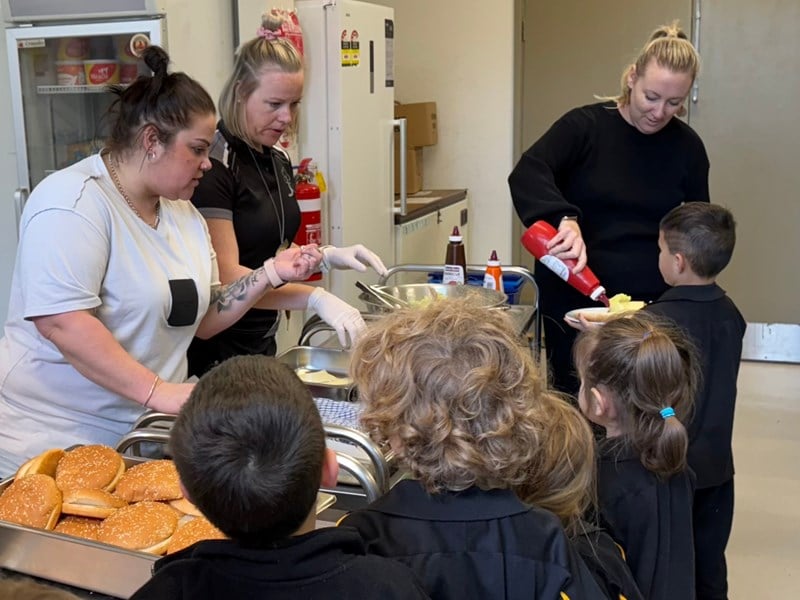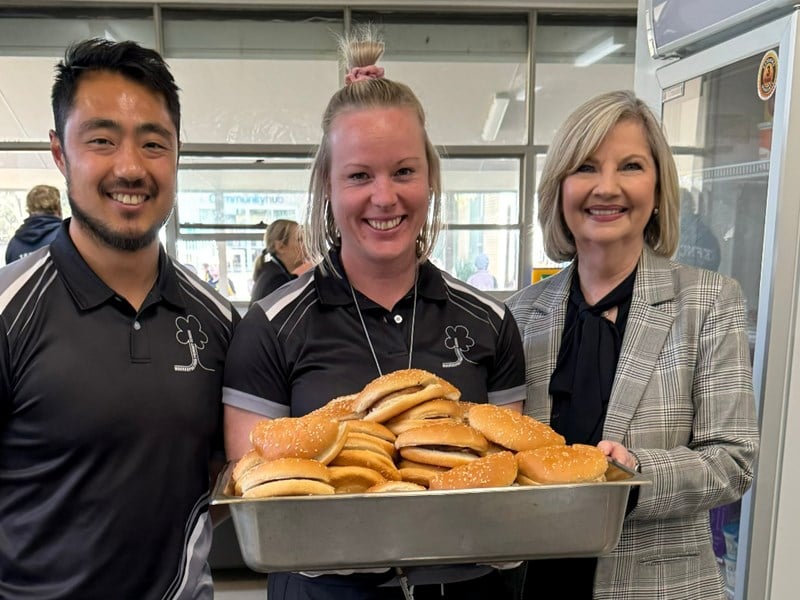Feeding better student outcomes
29 October 2024

With more than 2 million Australian households impacted by food insecurity, either running out of food due to financial constraints or going entire days without eating, programs that address this growing concern have gained support from members of parliament.
Households with children are disproportionately affected, at 1.5 times the national average, Foodbank reports.
To alleviate the pressure on families, school breakfast clubs have come to the fore, with members of parliament advocating for them to assist children in their local communities.
‘People may feel embarrassed because they haven’t had the milk for the Weetbix in the morning or they haven’t had the butter for the toast,’ said Kim O’Keeffe, Member for Shepparton.
Children from food-insecure households often face poorer academic outcomes as hunger negatively impacts a child's ability to concentrate, self-regulate and learn.
The School Breakfast Club Program in Victoria aims to mitigate the effects of disadvantage on education by providing free, healthy and nutritious breakfasts to students in government schools.
It’s an issue that’s garnered support across the political spectrum.
Lara MP Ella George is passionate about supporting breakfast clubs, particularly through government funding.
‘My mum was a teacher, and when I was growing up I heard a lot from her about kids who didn’t have breakfast,’ she said.
‘She and her colleagues would often buy a salad roll for kids who came to school hungry. That is so generous of our teachers, but I think it is also fantastic that there is a role for the government to play in that.’
Government funding for breakfast club programs was made available in 2016 and has since been expanding to schools across the state.
‘The state government has committed a further 21.1 million dollars in this year’s state budget to expand breakfast club programs to all government schools that opt in across the state. This builds on $141 million that has been invested in the program since 2016,’ Ella George noted.

According to Kim O’Keeffe, breakfast clubs not only address one of the most fundamental needs of children, having access to nutritious meals, but also contribute to students' overall wellbeing and academic success.
In a Victoria University evaluation of school breakfast programs, 95% of teachers observed improved student concentration and 85% noted a positive impact on academic outcomes among students who attended the breakfast club.
‘Mooroopna Park Primary is a great example. There has been a significant impact and improvement in students’ behaviour, attendance and overall wellbeing,’ O’Keefe said.
‘In 2022 the school won an award for Best School Wellbeing program because of the improvement, such as a reduced suspension rate from 120 students per year to just 10, all because they were provided meals.’
For Ella George, another significant benefit of breakfast clubs is the social focus they provide for students in the morning.
‘It’s not just about feeding, it is not just about having a healthy breakfast, it is also about the social connections.’ she said.
In the same Victoria University study, 95% of teachers observed improved social relations between students and staff and 89% report enhanced social relations between students and community members.
‘Some students choose not to eat breakfast at home, and when they get to school they will actually eat something because their friends are,’ Kim O’Keeffe noted.
‘We need children to feel comfortable to access that food. There is never judgment. It is really important that there is no stigma.’
However, staffing these programs remains a significant challenge, with over 72% of teachers identifying it as a barrier.
‘Post-COVID, volunteering has changed. We don’t have the level of people contributing like they used to. Volunteer shortage is a big issue,’ O’Keeffe said.
‘I aim to raise awareness about the importance and benefits of these programs within parliament and among my constituents.
‘We need to encourage community involvement. Organisations can play a significant role by offering assistance such as food donations, financial support and volunteer services.
‘For example, in my electorate, local businesses, charities and even orchardists have been actively supporting schools by donating food and resources, which has been instrumental in the success of these programs.’
Ella George echoed these sentiments, indicating that she is an advocate for the programs to continue and opposes any attempted cuts in future years.
‘That is my job as a local MP and something I am committed to doing,’ she said.

This is reflected in parliament where MPs are actively using their voices to advocate for programs aimed at addressing food insecurity among students.
‘We know breakfast club is an incredible program in helping to reduce the financial strain for families, ensuring that kids are getting a nourishing start to the day,’ Alison Marchant, Member for Bellarine, recently said in a Member’s Statement to the Legislative Assembly.
‘It is currently run in several schools across the Bellarine, but I am very much looking forward to this government expanding the program across all government schools next year,’ she said.
According to Ella George, breakfast clubs play pivotal roles in giving our youngest learners a strong start to their education.
‘They really go a long way in supporting that great start to the day, a great and productive school week and the very best start a child can have in their life,' she said.
‘That’s the why.’
About the Author

Jasmine Toronis
A participant in the Parliament Express program conducted by the Parliament of Victoria in partnership with Express Media. The program provided mentoring and engagement experiences, leading to a series of articles written by young Victorians for the Victorian Parliament's website.